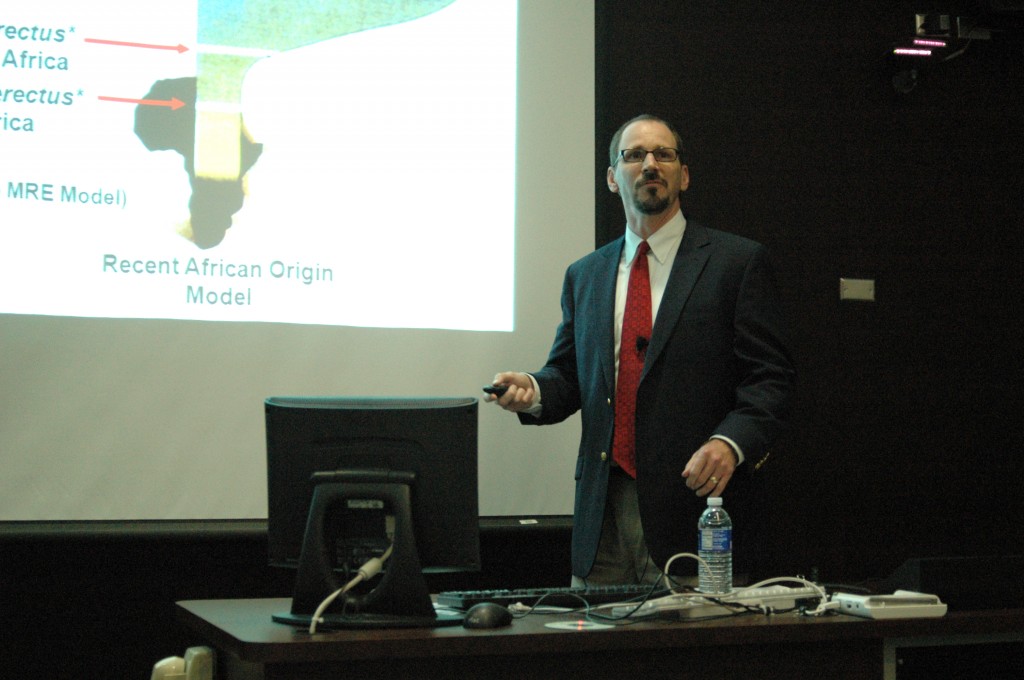
According to one professor, the average person could have more in common with a Neandertal than with their great-great-grandparents.
Trenton Holliday, professor of anthropology at Tulane University, spoke Monday on modern humans’ origins and relationships with their ancestors to a crowd of about 100 people.
According to Holliday, recent genetic studies comparing fossils with modern human DNA have suggested the possibility of hybrids of homo sapiens and Neandertals. Holliday said he always considers Neandertals’ role in modern human origins.
Holliday compared the two most popular evolutionary models: the multiregional evolution model and the recent African origin model.
Multiregional evolution suggests that human ancestors spread out and evolved separately into variations of the modern human. The recent African origin model suggests all modern humans originated in Africa and migrated to other places.
Holliday rejects both models, opting for more moderate theories.
He said that the extreme versions of the recent African origins aren’t realistic because they reject interbreeding between modern humans and Neandertals.
However, Holliday also rejects multiregional evolution because the population was likely neither large nor dense enough to support the gene flow required. Multiregional evolution would also classify Neandertals as homo sapiens.
“Reproductive isolation is not a definitive point, but a gradual process,” he explained.
Holliday said he defends the possibility of modern humans mating with Neandertals, but he understands why some find the idea unappealing.
“There are issues with having Neandertals as ancestors,” Holliday said. “If someone call you a Neandertal, I don’t think that’s a compliment. I’m here to try and pacify their image a little bit.”
According to Holliday, humans have relatively low genetic diversity, with two humans having less genetic variation than two chimpanzees. Because of this lack of variation, it is possible for a person to have more traits in common with their Neandertal ancestor than a distant relative.
Humans receive a shrinking percentage of their genes from prior generations. Half of their genes come from the mother and father, one quarter from each grandparent, and the number is halved each time.
“I would be more closely related to a Neandertal than to [my great-great-grandmother’s] parents,” Holliday said.
The lecture was part of the Evolutionary Studies seminar series, which features a guest speaker every week. The seminars are open to the public, but also count toward “Current Topics in EvoS,” a two-credit course.
Kian Conroy, a junior majoring in biology, attended the seminar as part of “Current Topics in EvoS.” Conroy said he enjoyed the speaker, but wanted more evidence for his claims.
“It seemed like a lot of what he said was hearsay, and mostly theorized,” he said. “I did like that he justified his reasoning though. He was one of the better speakers so far.”


